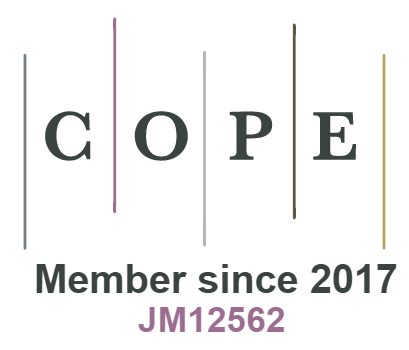Secure Programming with SAS: Mitigating Risks and Protecting Data Integrity
DOI:
https://doi.org/10.18034/ei.v6i2.709Keywords:
SAS Programming, Secure Coding, Cybersecurity, Software Vulnerabilities, Information ProtectionAbstract
This article examines the significance of safe programming with SAS (Statistical Analysis System) for risk mitigation and data integrity protection in data-driven environments. The study intends to investigate data protection strategies to improve application security, look at best practices for secure SAS coding, and identify prevalent security threats related to SAS applications. The review process is secondary data, with insights gleaned from online resources, industry reports, conference papers, and academic journals. Important discoveries show that SAS programs frequently have vulnerabilities, including SQL injection, cross-site scripting (XSS), and unsafe data handling. The best practices that have been established encompass data encryption, secure access controls, output encoding, parameterized queries, and input validation. The policy implications emphasize the significance of legislative frameworks for data protection and encouraging instruction in secure programming practices. This report emphasizes how important it is for businesses to use SAS for secure programming to protect sensitive data, abide by data protection laws, and defend against cyberattacks.
Downloads
References
Abdulhamid, S. M., Latiff, M. S. A., Abdul-Salaam, G., Madni, S. H. H. (2016). Secure Scientific Applications Scheduling Technique for Cloud Computing Environment Using Global League Championship Algorithm. PLoS One, 11(7), e0158102. https://doi.org/10.1371/journal.pone.0158102 DOI: https://doi.org/10.1371/journal.pone.0158102
Anumandla, S. K. R. (2018). AI-enabled Decision Support Systems and Reciprocal Symmetry: Empowering Managers for Better Business Outcomes. International Journal of Reciprocal Symmetry and Theoretical Physics, 5, 33-41. https://upright.pub/index.php/ijrstp/article/view/129
Bilal, M., Asif, M., Bashir, A. (2018). Assessment of Secure OpenID-Based DAAA Protocol for Avoiding Session Hijacking in Web Applications. Security and Communication Networks, 2018. https://doi.org/10.1155/2018/6315039 DOI: https://doi.org/10.1155/2018/6315039
Khair, M. A. (2018). Security-Centric Software Development: Integrating Secure Coding Practices into the Software Development Lifecycle. Technology & Management Review, 3, 12-26. https://upright.pub/index.php/tmr/article/view/124
Ksiazak, P., Farrelly, W., Curran, K. (2014). A Lightweight Authentication Protocol for Secure Communications between Resource-Limited Devices and Wireless Sensor Networks. International Journal of Information Security and Privacy, 8(4), 62-102. https://doi.org/10.4018/IJISP.2014100104 DOI: https://doi.org/10.4018/IJISP.2014100104
Lu, J., Yao, L., He, X., Huang, C., Wang, D. (2018). A Security Analysis Method for Security Protocol Implementations Based on Message Construction. Applied Sciences, 8(12). https://doi.org/10.3390/app8122543 DOI: https://doi.org/10.3390/app8122543
Mullangi, K. (2017). Enhancing Financial Performance through AI-driven Predictive Analytics and Reciprocal Symmetry. Asian Accounting and Auditing Advancement, 8(1), 57–66. https://4ajournal.com/article/view/89
Mullangi, K., Yarlagadda, V. K., Dhameliya, N., & Rodriguez, M. (2018). Integrating AI and Reciprocal Symmetry in Financial Management: A Pathway to Enhanced Decision-Making. International Journal of Reciprocal Symmetry and Theoretical Physics, 5, 42-52. https://upright.pub/index.php/ijrstp/article/view/134
Patel, A., Qi, W., Taghavi, M. (2011). Design of Secure and Trustworthy Mobile Agent-based E-marketplace System. Information Management & Computer Security, 19(5), 333-352. https://doi.org/10.1108/09685221111188610 DOI: https://doi.org/10.1108/09685221111188610
Roy, D. B., Bhasin, S., Danger, J-L., Guilley, S., He, W. (2018). The Conflicted Usage of RLUTs for Security-Critical Applications on FPGA. Journal of Hardware and Systems Security, 2(2), 162-178. https://doi.org/10.1007/s41635-018-0035-4 DOI: https://doi.org/10.1007/s41635-018-0035-4
Sandu, A. K., Surarapu, P., Khair, M. A., & Mahadasa, R. (2018). Massive MIMO: Revolutionizing Wireless Communication through Massive Antenna Arrays and Beamforming. International Journal of Reciprocal Symmetry and Theoretical Physics, 5, 22-32. https://upright.pub/index.php/ijrstp/article/view/125
Shajahan, M. A. (2018). Fault Tolerance and Reliability in AUTOSAR Stack Development: Redundancy and Error Handling Strategies. Technology & Management Review, 3, 27-45. https://upright.pub/index.php/tmr/article/view/126
Tejani, J. G. (2017). Thermoplastic Elastomers: Emerging Trends and Applications in Rubber Manufacturing. Global Disclosure of Economics and Business, 6(2), 133-144. https://doi.org/10.18034/gdeb.v6i2.737 DOI: https://doi.org/10.18034/gdeb.v6i2.737
Vorakulpipat, C., Sirapaisan, S., Rattanalerdnusorn, E., Savangsuk, V. (2017). A Policy-Based Framework for Preserving Confidentiality in BYOD Environments: A Review of Information Security Perspectives. Security and Communication Networks, 2017. https://doi.org/10.1155/2017/2057260 DOI: https://doi.org/10.1155/2017/2057260
Wenge, O., Schuller, D., Rensing, C., Steinmetz, R. (2014). On Developing Fair and Orderly Cloud Markets: QoS- and Security-Aware Optimization of Cloud Collaboration. International Journal of Organizational and Collective Intelligence, 4(3), 22-43. https://doi.org/10.4018/ijoci.2014070102 DOI: https://doi.org/10.4018/ijoci.2014070102
Ying, D., Patel, B., & Dhameliya, N. (2017). Managing Digital Transformation: The Role of Artificial Intelligence and Reciprocal Symmetry in Business. ABC Research Alert, 5(3), 67–77. https://doi.org/10.18034/ra.v5i3.659 DOI: https://doi.org/10.18034/ra.v5i3.659
Downloads
Published
Issue
Section
License
Copyright (c) 2018 Vamsi Krishna Yarlagadda, Rajani Pydipalli

This work is licensed under a Creative Commons Attribution-NonCommercial 4.0 International License.
Engineering International is an Open Access journal. Authors who publish with this journal agree to the following terms:
- Authors retain copyright and grant the journal the right of first publication with the work simultaneously licensed under a CC BY-NC 4.0 International License that allows others to share the work with an acknowledgment of the work's authorship and initial publication in this journal.
- Authors are able to enter into separate, additional contractual arrangements for the non-exclusive distribution of the journal's published version of their work (e.g., post it to an institutional repository or publish it in a book), with an acknowledgment of its initial publication in this journal. We require authors to inform us of any instances of re-publication.









